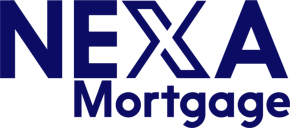

Becoming a homeowner is a significant goal for many, but the path to homeownership can be more complex for self-employed individuals. The unpredictable nature of self-employment income and the need for extensive documentation can make the mortgage application process challenging. However, with proper preparation and knowledge, achieving your dream of homeownership is entirely possible. Let’s explore the mortgage options available to self-employed individuals and key strategies to help you secure approval more easily.
Challenges Faced by the Self-Employed
One of the primary hurdles self-employed individuals face is proving a stable and consistent income. Traditional employees typically provide pay stubs and W-2 forms, but self-employed borrowers must offer more comprehensive documentation. Most lenders will require at least two years of tax returns to verify your income, which can be difficult if your earnings fluctuate from year to year.
Another challenge is how tax deductions affect your application. While deductions lower your taxable income (and therefore your tax bill), they can also make your income appear lower on paper, which may impact your ability to qualify for a mortgage.
Mortgage Options for the Self-Employed
Traditional Loans
If you’re applying for a traditional mortgage, preparation is essential. Make sure your tax returns accurately reflect your income, and consider reducing the number of deductions you take in the years leading up to your mortgage application. Lenders will want to see consistent or increasing income to feel confident in your financial stability. This may mean taking a more conservative approach to your tax filings for a few years to demonstrate your true earning potential.
Bank Statement Loans
Bank statement loans are a flexible option for self-employed individuals who may not meet the criteria for a traditional loan. Rather than relying on tax returns, lenders will review your bank statements from the last 12 to 24 months to determine your income. While interest rates for bank statement loans are typically higher, this option can be an excellent solution for those with fluctuating income or extensive deductions that reduce their reported income on tax returns.
Government-Backed Loans
Federal Housing Administration (FHA) loans offer another alternative, particularly for first-time buyers. FHA loans allow for lower down payments and have more lenient credit score requirements, making them a good fit for self-employed individuals. However, the application process may still require extensive documentation, and the property must meet certain standards.
Tips for Strengthening Your Application
Organize Your Documentation
Lenders will need detailed documentation of your income and financial situation. Make sure to gather at least two years of tax returns, profit and loss statements, bank statements, and records of any assets or debts. The more organized and thorough your documentation, the smoother the approval process will be.
Increase Your Income
Improving your financial profile is another key step to securing a mortgage. Focus on improving your credit score, reducing your debt, and maintaining steady income for at least two years before applying for a loan. This will not only make you a more attractive borrower but could also help you qualify for better loan terms.
Work with a Mortgage Professional
Navigating the mortgage process as a self-employed borrower can be complex, and working with a mortgage broker or lender who understands your unique financial situation can make all the difference. An experienced mortgage professional can help you explore the right loan options, prepare your documentation, and connect you with lenders who specialize in working with self-employed individuals.
While getting a mortgage as a self-employed individual may seem challenging, it’s entirely possible with the right approach. By preparing your finances, exploring flexible mortgage options, and seeking guidance from a knowledgeable mortgage professional, you can achieve your goal of homeownership. With careful planning and persistence, the dream of owning your own home is well within reach.
Ready to explore your mortgage options?
If you're self-employed, contact us today so that we can help you get approved for a mortgage.
